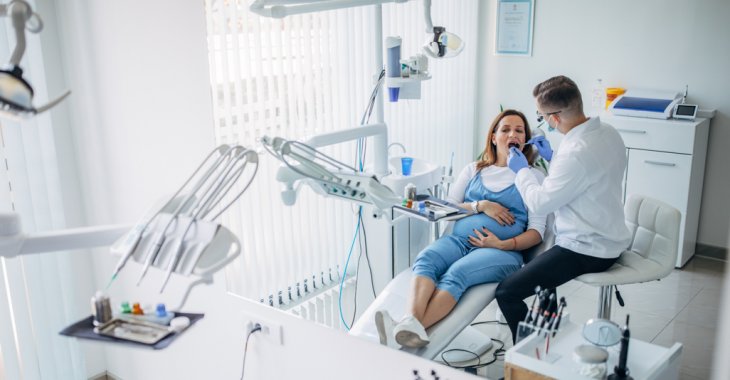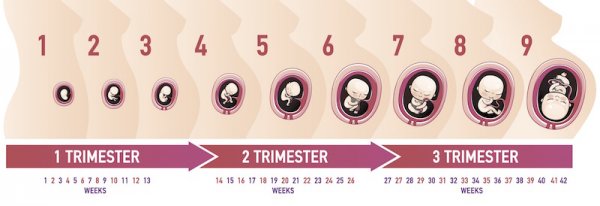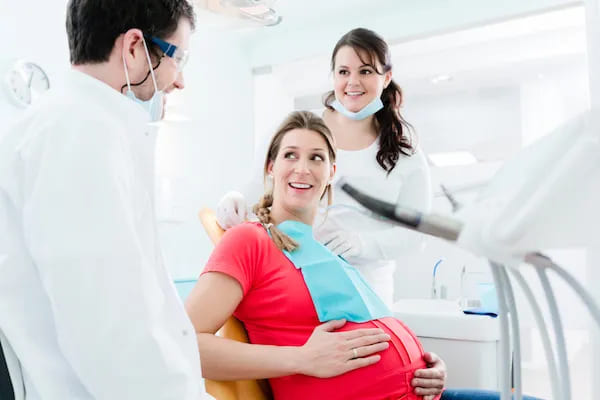Yes, but there are times during your pregnancy that you should, if possible, wait until after the birth. Stress, and most antibiotics cross the placenta, potentially affecting the baby.
WHAT HAPPENS TO A WOMAN’S BODY DURING PREGNANCY?
Nearly every organ system, including cardiovascular, endocrine, gastrointestinal, genitourinary, hematologic, oral-facial, and respiratory systems, experiences some form of change.
SO WHEN CAN I GO TO THE DENTIST, AND WHAT FOR?
Because any treatment undertaken can, potentially, affect the lives of both the mother and the baby – the treatments we perform are limited.
FIRST TRIMESTER
Conception to 14th week
This is the most important time for your baby’s development. Medications, chemicals, and certain infections can interfere with that development. We limit dental treatments to periodontal disease avoidance and emergency treatments.
WHAT’S IMPORTANT DURING THIS TRIMESTER?
- Avoid routine radiographs
- Be obsessive about your oral hygiene and plaque control. Reports indicate a connection between pre-term low birth weight and periodontal disease.
SECOND TRIMESTER
14th to 28th week
For baby:
By the end of week 8, your baby’s organs are completely developed. The risk to your baby is greatly reduced. Some elective and emergency procedures can be more safely undertaken.
For you:
A decrease in your blood pressure and your heart’s output, a.k.a. supine hypotension, can occur while you’re lying down. So dentists prefer to limit the time you’re in the chair. This means any major surgery which can be, is postponed until after birth.
Increased blood flow, from extra oestrogen circulating through your body, means a greater likelihood of developing gingivitis, gingival hyperplasia and excess saliva.
- Extra saliva – the cells in your mouth, which provide the necessary saliva, increase in number. And bacteria loves it, giving you cavities, gingivitis, and gingival hyperplasia.
- Gingivitis – a common gum disease from poor oral hygiene resulting in swollen, receding, bleeding gums. If untreated with professional cleaning and using mouthwashes, it can lead to tooth loss or worse.
- Gingival hyperplasia – poor oral hygiene or a side effect of certain medications causes an overgrowth of gum tissue.
- Pyogenic granuloma – non-cancerous red bumps on your skin or in your mouth that bleed easily. There are non-surgical options when it comes to treatment. Just ask your dentist.
In both the second and third trimesters pay attention to:
- Did we mention being deliberately obsessive, about your oral hygiene and plaque control?
- If necessary, scaling, polishing, and dental curettage
- Control of any active oral diseases
- Elective dental care is safe
- Avoid routine radiographs.
THIRD TRIMESTER
29th week until childbirth
While your baby is safe, you may experience greater discomfort, especially being in the dentist’s chair for long periods, with greater risk of supine hypotension.
If possible, plan all elective dental surgeries either side of your pregnancy. If you’ve experienced trauma, infection, or oral disease, our goal, while minimizing any risk to your baby, is your health. If you are intending to get pregnant, having a full examination and a hygiene visit is the best option.
Need to see the dentist, but you’re pregnant? Let us know when you make an appointment, and we can advise you. Contact us on 0508 TEAM DENTAL


